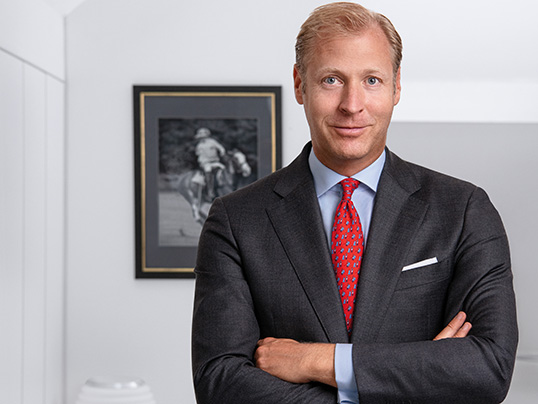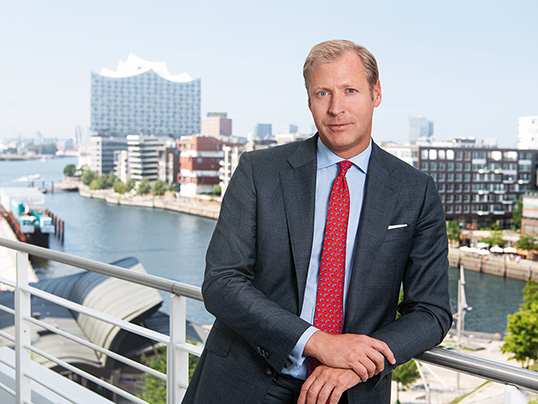The Corona pandemic has once again shown how crisis-proof an investment in real estate can be. For while other sectors were particularly hard hit by the pandemic, real estate prices have remained stable in many places. But how does one enter into such an investment in order to generate a secure and profitable capital investment? Here is a beginners guide by Engel & Völkers CEO Sven Odia:
Real estate meets a basic need: the need for security. The stock exchange mistrust will reinforce the consumer’s perception of real estate being one of the safest, tangible and long-term investments. Homeownership is at one of its highest levels, and the trend will continue to move up. Eventually, a property is something you can touch and experience, meaning that this is often a more emotional pursuit than stocks or bonds.
My own enthusiasm for real estate is what motivated me to invest in residential property even in my younger years. My first investment was a plot of land on Mallorca. At that time, I was still running the Engel & Völkers shops on the island in Andratx and Portals. I had plans for the plot and wanted to develop it, but was then called back to Hamburg for work. Even back then, it was clear to me how much I enjoyed planning and designing properties, and my fascination for real estate endures to this day. For anybody who is interested, I’ve put together a few tips here.
Align your property projects with your investment philosophy
The first step to investing successfully in property is to determine the nature of the project: is it mainly a financial investment or rather a lifestyle investment? If it is a lifestyle investment, what personal or family goals should it support? Consider details such as restrictions of use, as well as the potential for appreciation over a specific period of time.
If an investor is buying for financial reasons, is the investment based on income returns and yields or capital growth? It is crucial to understand whether a property will be well-positioned in the current and future rental markets in addition to factoring in operating costs and fees. Properties purchased to generate return are still supplying the owner with a regular income due to rent. Therefore, demand is continuously strong.
Also, Investors may require investments that will enhance residence or preferred immigration status. Therefore, the property’s location and the development potential of the region is essential.
Come, Live and Invest in The Bahamas
Select a diverse real estate portfolio
One key to success is to have a diversified investment approach. Something that is generally advised by most financial experts (as a side note, I’m not a financial expert, so please check with your own). The advantage of this is that assets are spread out across markets, currencies, and economic cycles, therefore balancing potential risk. The focus here is on the right mix between profitable and risky properties. This diversification is achieved through a balanced real estate portfolio of different locations, types, sizes, operators and users. Depending on the profit expectations, the concentration on certain market segments also takes place.
At present, ultra-high-net-worth-individuals (UHNWIs) from Germany are investing strongly in the top-7-cities, which include Berlin, Munich, Hamburg, Frankfurt, Düsseldorf, Cologne and Stuttgart. There is a strong excess demand on Germany’s luxury real estate market, with extremely limited availability of properties. This general situation has meant that sale and rental deals were still closed at very high prices in the top-7-cities’ prime locations, even during the coronavirus outbreak.
Established holiday destinations with excellent infrastructure and stable health systems, like Austria and Switzerland, are also on top of the list for most UHNWIs, seeking investment opportunities in second-home markets. In the Mediterranean, we see an upswing in investors, particularly on the Balearic Islands and Greece.
Look for tax advantages
Special tax regulations might also encourage UHNWIs to invest in real estate. For instance, Italy introduced a special tax regime in 2017. It is intended to attract Italian and foreign investors who have resided outside the country for at least nine of the previous ten years to transfer their tax residence to Italy and pay a fixed amount of EUR 100,000, instead of the regular Italian income tax, on their income from foreign sources.
In terms of taxation, it is crucial to know whether an investor plans to use a property as a second residence after relocating or rather proposes to rent it out. This decision, made at the time of purchase, will determine the taxation that applies during the period of ownership and at resale.
Chose your location wisely: From Coast to Island to Mountain
When weighing up where to invest in property, consider that international holiday hotspots offer financially rewarding opportunities. Owning luxury property in desirable holiday destinations is ideal for letting out during the high season when UHNWIs are looking for exclusive accommodation. Profitable rentals depend above all on three factors:
- a very good location and infrastructure
- first-class amenities
- a consistently high level of interest in the holiday region.
The coronavirus crisis has led to a rise in buyer interest in the luxury segment for large properties in standalone locations. The opportunities for retreat and the sense of security that such properties offer them and their families have seen premium clients flock to these in-demand locations. One of the most attractive summer hotspots for UHNWIs is the French Riviera. International buyers invest in houses and apartments, especially in the region around Cannes, Saint-Jean-Cap-Ferrat, and Saint-Tropez. Mallorca offers exclusive properties to clients seeking stunning locations in a secure environment, while luxury residences on Mykonos, Santorini, and Sardinia are also in high demand.
This appetite is reflected in exceptional sales prices – even in times of the coronavirus. Finally, bear in mind that buyers and investors with high public profiles frequently attract other wealthy clientele, adding value to a region. When it comes to winter holiday favourites, Aspen, Courchevel, Gstaad, Kitzbühel, St. Moritz, and Vail rank among the most exclusive ski destinations worldwide. Luxury properties in these areas will always be sound investments because there are so few homes available. To ensure long-term potential growth in value, investors should look for properties in top locations. The highest resale value comes from properties with first-class architecture and features and spectacular panoramic views of water or mountain scenery.
Take a look at the most beautiful properties in Italy, Spain, Germany, France, and the US in our digital GG magazine: https://www.engelvoelkers.com/en-de/company/gg-country-edition/
Checklist: How to improve your skills as a Private Property Investor
In the long-term, the coronavirus pandemic will not lead to a drop in demand for residential property. The apartment and housing shortage in cities will remain, interest rates for mortgages will become even lower with the significant easing of monetary policy, and many people still own assets despite this crisis.
As their property becomes an even more important place for living and remote working, clients are particularly interested in better homes with improved interiors and outdoor spaces. For investors, real estate has proven to be a preferred asset amid the corona crisis. So, how can you improve your prowess as a private property investor? Here are my tips:
- Develop an investment strategy, taking time to research the property and area.
- Compare the property’s price to similar properties recently sold in the area. Be sure to understand the property’s location clearly on a micro- and a macro-level as well as its condition.
- Assess the annual running costs, including maintenance, taxes, and personnel.
In the end, I highly recommend finding a reputable, experienced, and trustworthy real estate advisor. Investing in property is a very emotional business. Take time to find the right person who can also help to identify the best external service providers – banks, tax advisors, law firms – to deal with financing, and a host of other matters.




